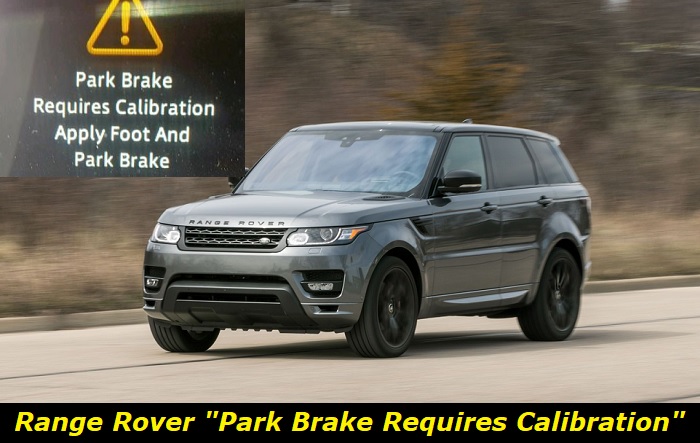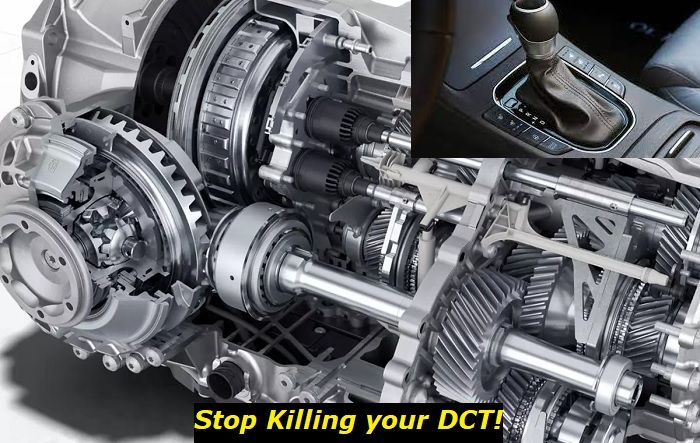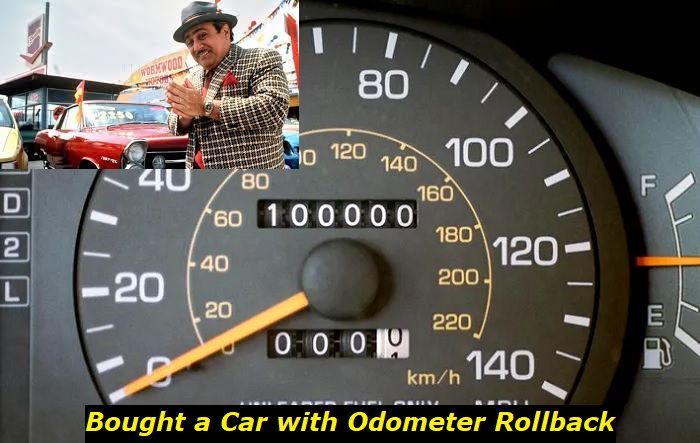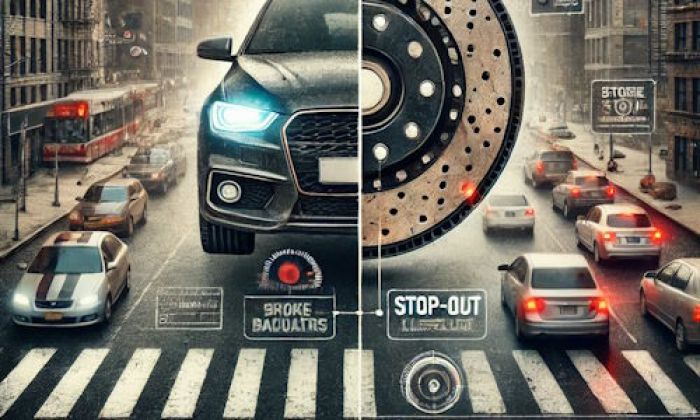With how fast technology improves and advances nowadays, it can be quite dizzying trying to keep track of it all. So if you got into your Range Rover and saw a notification pop up on the system display that the parking brake requires calibration, don't fret.
Park brake requires calibration message highlights
- Common reasons:battery issues, parking brake control module problems, parking brake motor issues
- How to fix:disconnect the battery for some time, check the battery voltage
- Possible consequences:car may not move as the EPB will be locked
- Priority level:High
- Can you drive?Only if the EPB isn't activated
- DIY repair:Impossible
- Repair price range:$250-$1,500

Why Does "Park Brake Requires Calibration" Appear On Range Rover?
There are several reasons why that notification popped up on your car's display screen. Half the time, however, it usually means nothing. Usually, there's an internal error within the system that's causing it.
As long as you follow the instructions provided, you will easily clear out the issue and you can continue driving. However, that's not usually the case. And when that happens, it means that there's something wrong with your car.
What Causes a Parking Brake Malfunction?
The park brakes are responsible for keeping your car stationary, preventing it from moving or rolling when you're on an uphill slope. However, they are not perfect. As such, if you find yourself stuck due to an error, it's worth taking a look at your car to determine what could be the cause of it.
1) Faulty Parking Brake Actuator
Behind the rear brake calipers, you can find brake actuators which are responsible for the mechanical movements of the parking brakes. These are responsible for locking and releasing your vehicle into place. So when they fail to engage, it usually means trouble for your system.
So no matter how many times you try to reset and calibrate the parking brake, nothing will happen because there's no movement going on. You will need to call an auto shop to tow your car and have the issue fixed.
2) Electrical Issue
A common fault with electrical systems is that the varying wires can cause a short circuit to happen within the internal system. When that happens, it becomes a problem that's quite difficult to pinpoint. It also makes resetting the park brake the standard way null and void.
For you to resolve this issue, you will need to use an OBD2 scanner to help you reset your car's internal system. If the problem continues to persist, you will need the help of a professional.
3) Weak Battery
Another common cause of why you're seeing a park brake calibration notification is due to a weak battery. More specifically, this happens when the car battery disengages due to having no more power at all.
The parking brake works off the power provided by the car battery. So if there's little to no power, the parking brake will fail to disengage, leaving you stuck wherever you are.
Replacing the car battery is more than enough to resolve the issue. As long as there's enough power, the parking brake will disengage and allow your car to start moving once more.
4) Uneven Brake Pad Wear
If even after following the instructions on the display screen of your vehicle didn't clear the park brake notification and there's plenty of power to go around, then the brake pads are at fault. When it comes to holding the vehicle in place, the brake pads are responsible for making that happen as they firmly grip the rotors to prevent your vehicle from moving.
Over time, however, these brake pads will eventually suffer from wear and tear. When that happens, their gripping ability will start to weaken, causing an error to happen.
If you don't want this to happen, schedule an appointment with your local auto shop to get the brake pads checked and replaced. Doing this helps you to avoid getting into sticky situations with your park brake.
5) Lack Of Lubrication
Another thing that a lot of drivers tend to forget is lubrication. If there's not enough oil lubricating your car's park brakes, then it will eventually cause your car's system to work harder than it should.
When that happens, it's common for you to see park brake notifications show up on your car's display screen. Worse, it can even lead to a fuse blowing up.
6) Corrosion
Lastly, an accumulation of rust can lead to corrosion, which then leads to having a faulty park brake. This usually happens if you don't often use the parking brake of your car.
Comparing it to our bodies, this will lead to a lack of movement in the parking brakes that will cause strain on certain parts. And if you're one not to use the parking brake of your car for months or years, then it's inevitable that there will be a problem.
That's why mechanics and drivers recommend that you use the parking brake at least once every day. This is to avoid the build-up of rust and corrosion in your car's park brakes.
How To Maintain Park Brakes?
If you wish to avoid the problems mentioned earlier, then you need to take better care of your vehicle. To do that, these are some of the things to keep in mind when maintaining your car's park brakes.
- Check The Components
Make it a habit to check the components of your car's park brakes. Doing this helps you get on top of things, allowing you to understand whether or not there's a problem that needs your immediate attention.
One of the components that you need to keep in mind when doing this is the brake pads. Because of the nature of their work, they suffer the most in terms of wear and tear. As such, make sure to clean them out and replace them when the time comes.
- Test The Voltage
Next, make it a point to check the amount of voltage that your car's park brake system is receiving. Do this especially when you just replaced the car battery.
If the park brake system receives more or less power, then it could trigger a fault within the car's internal system. To resolve such issues, you will need to use a variety of diagnostic tools.
- Examine The Cables
Lastly, examine the park brake system cables for any exposed parts. Just like with the brake pads, these cables tend to deteriorate over time due to wear and tear. When that happens, the park brake system will not have enough power supplied.
So if there's something wrong with your park brake system and everything else checks out, take a look at the park brake system cables. Doing this will help save you time and point you in the direction where you need to go.
Conclusion
If you suddenly find yourself scratching your head over what to do when your Range Rover's display shows that the park brake needs calibration, don't worry. Normally, following the instructions given afterward will help you resolve the issue. But if that didn't help, you will need to use a few diagnostic tools, like an OBD2 scanner, to help clear the issue.
Also, make sure to bring your car to an auto shop for its yearly maintenance. Doing this will allow you to find faults with your vehicle early on, allowing you to get a headstart on the problem before it blows up into something bigger. So the next time you find a park brake notification on your car's display screen, take a moment to relax and do everything that you read so far before bringing your car to a professional.
About the authors
The CarAraC research team is composed of seasoned auto mechanics and automotive industry professionals, including individuals with advanced degrees and certifications in their field. Our team members boast prestigious credentials, reflecting their extensive knowledge and skills. These qualifications include: IMI: Institute of the Motor Industry, ASE-Certified Master Automobile Technicians; Coventry University, Graduate of MA in Automotive Journalism; Politecnico di Torino, Italy, MS Automotive Engineering; Ss. Cyril and Methodius University in Skopje, Mechanical University in Skopje; TOC Automotive College; DHA Suffa University, Department of Mechanical Engineering






Add comment